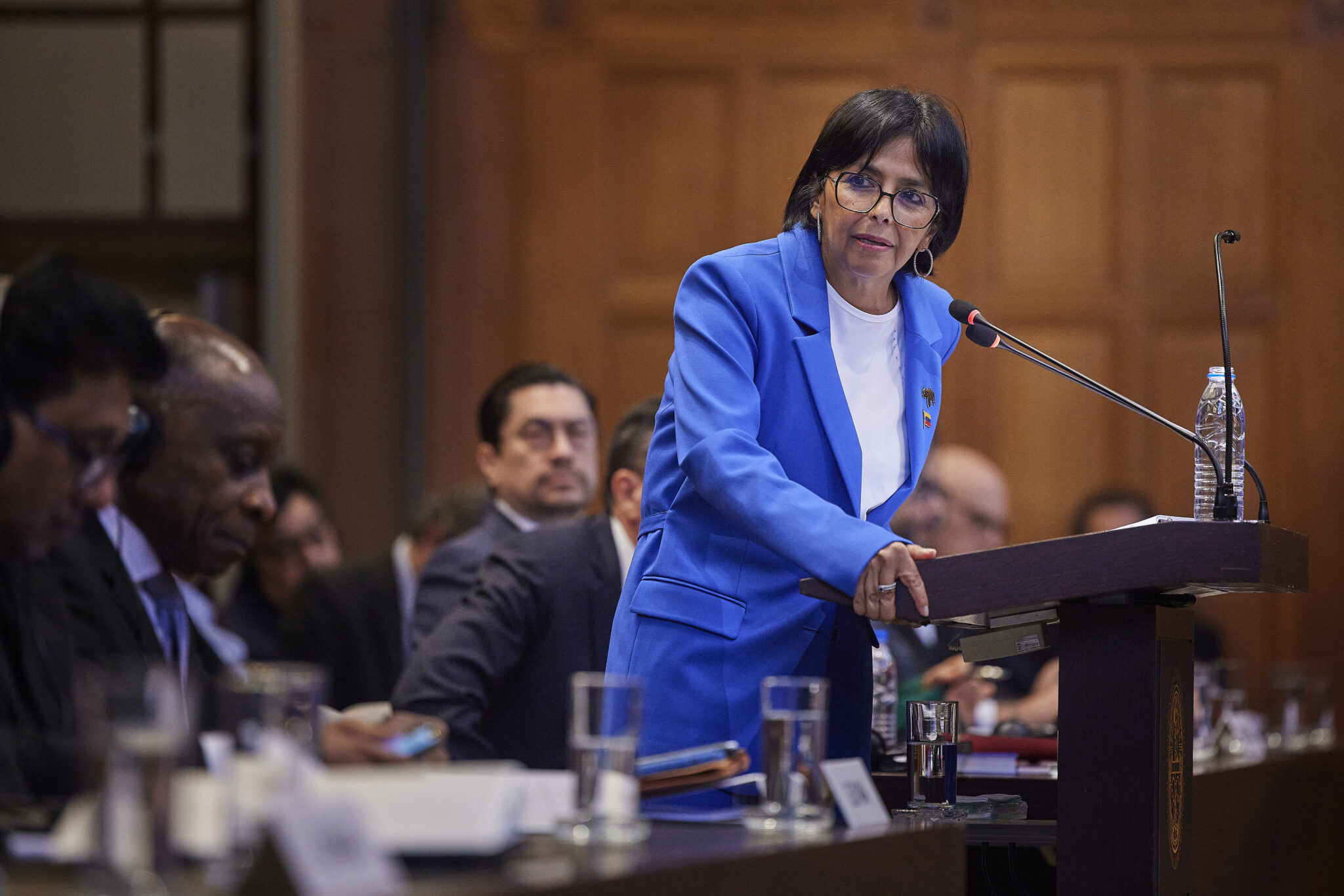“Abhorrent and illegal” were the terms used by Venezuela’s Vice President Delcy Rodriguez to describe Guyana’s move to approach the International Court of Justice (ICJ) to seek measures that would block its planned referendum.
That very referendum seeks to gather public support for the annexation of Guyana’s Essequibo region – two-thirds of its territory. A case is already before the World Court to settle a controversy that dates back to colonial times.
Venezuela set December 3 as the date for the referendum vote. It includes five questions to garner public support for the country to withdraw from the current proceedings before the World Court and instead adopt unilateral measures to “resolve” the controversy. Of these, the most contentious question concerns the apparent intent of the Venezuelan government, to seize Guyana’s Essequibo region.
Resolute in her country’s stance, Rodriguez made it clear to the World Court that after the votes are counted, “the State of Venezuela will not turn its back on what the people decide.”
Guyana lawmakers unanimously pass motion rejecting Venezuela referendum | OilNOW
Venezuela has maintained that it does not recognize the ICJ for the resolution of the controversy, a point that was repeated by the VP in her presentation.
The latest wave of aggression came from Venezuela after Guyana announced the results of its bid round. Communiques with threats to participating oil companies, threats to those who came out in support of Guyana, and threats to Guyana from President Nicolas Maduro and Venezuela’s Defence Minister, Vladímir Padrino López all came over the past two months. Guyana on the other hand, expressed its trust in the World Court to offer a final resolution to the controversy and called on Venezuela to to honour its obligations under the United Nations (UN) Charter to pursue only “peaceful means” to settle any controversy it may have with Guyana.
Yet, Guyana was painted as the aggressor by the Venezuelan VP.
The Venezuelan VP even expressed satisfaction at the show of evidence of the threats at the World Court.
“I would also like to stress just how proud we were yesterday when we saw in this very Hall our own Bolivarian national armed forces actively involved in promoting the participation of all citizens in the consultative referendum,” VP Delcy said.
She accused Guyana of flouting “international legality”, motivated by “greed and encouraged by hegemonic powers.”
“This Essequibo is ours, every square inch of it” – President Ali | OilNOW
“It [Guyana] granted oil concessions in a maritime territory that had yet to be delimited. Guyana is aware that it is acting against international law because it has expressly recognized that the delimitation of maritime boundaries was still pending… All of this apparent and illegal behavior has shown the true face of Guyana, an aggressor state, a predator of natural resources, and a violator of international law, in no way a victim,” Delcy expressed.
The Venezuelan VP asked the World Court to reject Guyana’s “attack on its constitution”, adding that the referendum, “which must be organized and held,” is an expression of her country’s democratic model.
The World Court may issue its ruling as soon, as Guyana has asked for provisional measures to block Venezuela’s vote on December 3. Guyana presented its oral argument to the World Court on November 14.
The hearings are part of a broader case, concerning the validity of the 1899 Arbitral Award, which settled the Essequibo region as then British Guiana’s territory over a century ago. Venezuela had accepted the award, but resurrected its claim for the region when Guyana gained independence from the United Kingdom. This resulted in the two sides signing on to the 1966 Geneva Agreement to resolve the controversy. For decades, the two sides have been unable to do so. Then, in 2018, invoking his responsibility under the Agreement, the United Nations Secretary General referred the matter to the ICJ.



